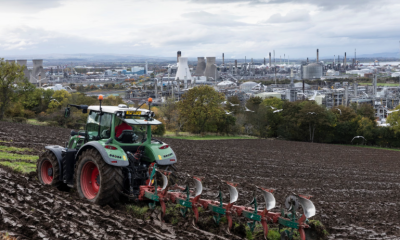NGO WORK
Communities stand up against corporate land grabs and State violence
Published
8 months agoon
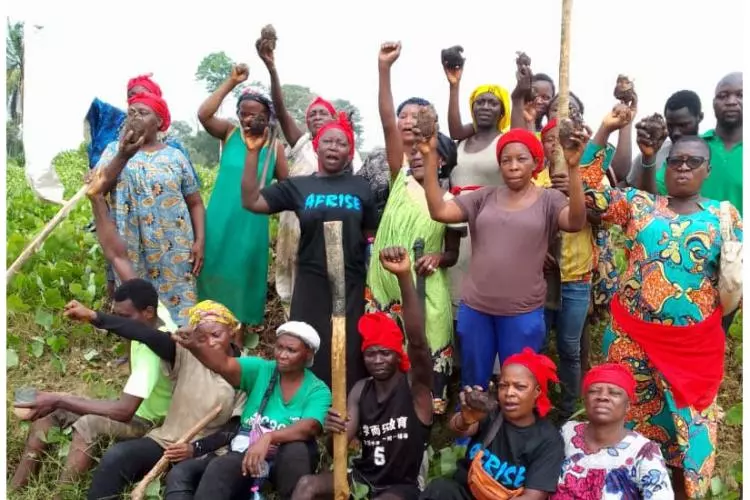
Across the global South, communities that oppose corporate control of their territories face not only corporate violence but also tear gas, batons and state repression. Challenging the expedient misinterpretation of “all land belongs to the State” that governments use to protect corporate interests, communities stand strong in the struggle to reclaim their ancestral lands “because it is a sacred place; it is a place that gives meaning to our existence.”
This editorial is about the courage and determination of communities who are mobilizing to denounce and resist corporate control over community lands. Often, they face not only corporate violence and control over their lands but also tear gas, batons and state repression unleashed by governments resorting to ‘a greedy misinterpretation of “all land belongs to the State”’ to protect corporate interests. (1)
This is what has been happening in the Litoral region of Cameroon, where the community of Apouh à Ngog is opposing the replanting of industrial oil palm plantations on their ancestral lands by Socapalm, a Cameroonian subsidiary of the notorious multinational Socfin. For nearly 50 years, the company operations have been making life miserable for the community of Apouh à Ngog, whose original village site was eradicated by the corporate oil palm plantations decades ago.
As Socapalm replaces sections of old oil palm plantations, it not only ignores community requests for retrocession of vital spaces immediately around the village; the new company plantings are creeping even closer to the village edge. “If they do not stop these operations, the women who live close to Socapalm in Edéa will have to endure another 50 years of suffering, abuse, rape, theft, hunger, frustration and violation of our rights, our privacy and our dignity”. This is what the Association of Women Neighbouring SOCAPALM Edéa (AFRISE) explains in a petition calling for an end to this occupation of the village’s vital life spaces by RSPO-certified Socapalm. (2)
In January 2025, the women of AFRISE planted banana saplings on some 35 hectares of disputed land being prepared for replanting by Socapalm. The company sprayed the young banana plants with chemicals shortly after and on 24 March, returned under the protection of dozens of armed military personnel to continue the replanting. Overcoming fear and facing tear gas and batons, the community stood in the way of the company’s bulldozers, blocking the corporate replanting for days. As the company forged on with its planting, over 60 organisations called for an immediate stop to the continued corporate encroachment on the community’s ancestral lands. They also urged the government of Cameroon to guarantee vital living space for the community of Apouh à Ngog – instead of sending in armed military forces to protect the corporate interest of Socfin, a company that like few others epitomizes the colonial pattern of exploitation of the region.
It is also what has been happening in the municipality of Aracruz, in the Brazilian state of Espírito Santo, where about 1000 women from the Rural Landless Workers’ Movement (MST) took action to demand agrarian reform and against the multiple forms of violence perpetrated against women. (3) Under the slogan, “Agribusiness means violence and environmental crimes. The struggle of women is against capital”, they occupied land controlled by Suzano, the world’s largest exporter of wood pulp. For years, the company has gone about its business with impunity, amassing large areas of fertile land and committing violations against Indigenous Peoples, quilombola and landless peasant communities. In a press release, the MST points out that “Multinationals are not worried about obtaining land in order to solve the problem of hunger in the country” and that it would be possible to settle more than 100,000 families on the 2.7 million hectares of fertile land in Brazil that are held by Suzano. In 2011, Suzano agreed to provide 22 areas occupied by the corporation for settlements of landless peasants, but the company has been failing to comply with its commitment.
Just as AFRISE in Apouh à Ngog, the women occupying the land in Aracruz vow to continue their struggle for land to grow food, as they, too, are confronted with a state siding with the company, not peasants. (4)
It is also what has been happening in Cote d’Ivoire, where 20 members of the indigenous Winnin community were arrested in December 2024. The Winnin have been voicing their opposition to the privatization of their ancestral lands at the Monogaga forest. (5) The Winnin have called these forests their home for more than six centuries. The Ivorian Ministry of Water and Forests, meanwhile, granted a concession to Roots Wild Foundation whose operations have already been causing conflict with the communities. The arrests and the threats to individuals of the Winnin prior to their detention highlight serious concerns about the criminalization of land defenders in the region.
It is also what is happening in Indonesia, in Papua, and across the Mekong region, as we read in two declarations we share in this edition of the bulletin. In Papua, the Solidaritas Merauke Movement came together to share stories of collective suffering and trauma caused by state-corporate crimes, especially in the name of what the government of Indonesia declared National Strategic Projects (PSN). The declaration, collectively prepared by the Solidaritas Merauke Movement, highlights community struggles against the dispossession of their living space by such state-corporate mega-projects that defile what communities hold sacred. In Thailand, communities from the Mekong region and Punan communities from North Kalimantan in Indonesia came together to exchange and learn about community struggles against mega-hydrodam projects. On the occasion of the International Day of Action Against Dams on 14 March, they reaffirm through a declaration the importance of standing together to show that “we are united and firm in the collective struggle to defend our rivers, forests and futures from false green solutions and corporate greed”.
In an interview with WRM in 2018, a leader of the Akroá-Gamela Peoples in Brazil explains why despite the fear of state repression and violence from greedy corporations, communities stand strong in the struggle to reclaim their ancestral lands: “because it is a sacred place; it is a place that gives meaning to our existence.” (6)
Because land gives meaning to their existence, communities are standing up against corporate violence and governments’ greedy misinterpretation of “all land belongs to the State”. In Apouhs à Ngog, Aracruz and the many other places, communities are organizing to protect and reclaim the lands of their ancestors – The struggle continues!
WRM Secretariat
(1) WRM Bulletin 241. 2018. A Reflection from Africa: Conquer the Fear for Building Stronger Movements.
(2) Petition. Cameroon: Testimony of women who reclaim their land back.
(3) Against capital and patriarchy, MST women hold day of struggle and occupy Suzano-owned eucalyptus plantations in Brazil.
(4) Brasil de Fato. 2025. Justiça determina despejo de ocupação de mulheres do MST em área da Suzano no ES.
(5) Mongabay. 2025. Des leaders communautaires emprisonnés après s’être opposés à la privatisation controversée d’une forêt classée en Côte d’Ivoire.
(6) WRM Bulletin 241. 2018. Brazil: I am Kum’tum, I am of the Akroá-Gamela People.
Source: World Rainforest Movement
Related posts:
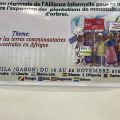
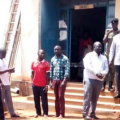 State House Anti-Corruption Unit nets a surveyor implicated in Mubende district land-grabs
State House Anti-Corruption Unit nets a surveyor implicated in Mubende district land-grabs
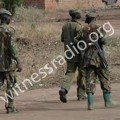 Is gun violence and state power…determining land ownership in Uganda?
Is gun violence and state power…determining land ownership in Uganda?
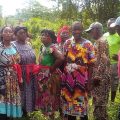 Palm oil company uses armed forces, tear gas against protesting villagers in Cameroon
Palm oil company uses armed forces, tear gas against protesting villagers in Cameroon
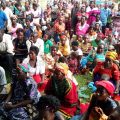 Land grabs: Officials in Mubende district are colluding with economically powerful and politically connected people to grab local communities’ land.
Land grabs: Officials in Mubende district are colluding with economically powerful and politically connected people to grab local communities’ land.
You may like
NGO WORK
Climate wash: The World Bank’s Fresh Offensive on Land Rights
Published
2 months agoon
November 13, 2025
Climate wash: The World Bank’s Fresh Offensive on Land Rights reveals how the Bank is appropriating climate commitments made at the Conference of the Parties (COP) to justify its multibillion-dollar initiative to “formalize” land tenure across the Global South. While the Bank claims that it is necessary “to access land for climate action,” Climatewash uncovers that its true aim is to open lands to agribusiness, mining of “transition minerals,” and false solutions like carbon credits – fueling dispossession and environmental destruction. Alongside plans to spend US$10 billion on land programs, the World Bank has also pledged to double its agribusiness investments to US$9 billion annually by 2030.
This report details how the Bank’s land programs and policy prescriptions to governments dismantle collective land tenure systems and promote individual titling and land markets as the norm, paving the way for private investment and corporate takeover. These reforms, often financed through loans taken by governments, force countries into debt while pushing a “structural transformation” that displaces smallholder farmers, undermines food sovereignty, and prioritizes industrial agriculture and extractive industries.
Drawing on a thorough analysis of World Bank programs from around the world, including case studies from Indonesia, Malawi, Madagascar, the Philippines, and Argentina, Climatewash documents how the Bank’s interventions are already displacing communities and entrenching land inequality. The report debunks the Bank’s climate action rhetoric. It details how the Bank’s efforts to consolidate land for industrial agriculture, mining, and carbon offsetting directly contradict the recommendations of the IPCC, which emphasizes the protection of lands from conversion and overexploitation and promotes practices such as agroecology as crucial climate solutions.
Read full report: Climatewash: The World Bank’s Fresh Offensive on Land Rights
Source: The Oakland Institute
Related posts:

 30 civil society organizations have written to the World Bank Group demanding to publicly disclose the Africa Energy Approach paper.
30 civil society organizations have written to the World Bank Group demanding to publicly disclose the Africa Energy Approach paper.
 World Bank’s new scheme to privatize land in the developing world exposed
World Bank’s new scheme to privatize land in the developing world exposed
 World Bank is backing dozens of new coal projects, despite climate pledges
World Bank is backing dozens of new coal projects, despite climate pledges
 Communities Under Siege: New Report Reveals World Bank Failures in Safeguard Compliance and Human Rights Oversight in Tanzania
Communities Under Siege: New Report Reveals World Bank Failures in Safeguard Compliance and Human Rights Oversight in Tanzania
NGO WORK
Africa’s Land Is Not Empty: New Report Debunks the Myth of “Unused Land” and Calls for a Just Future for the Continent’s Farmland
Published
2 months agoon
November 13, 2025
A new report challenges one of the most persistent and harmful myths shaping Africa’s development agenda — the idea that the continent holds vast expanses of “unused” or “underutilised” land waiting to be transformed into industrial farms or carbon markets.
Titled Land Availability and Land-Use Changes in Africa (2025), the study exposes how this colonial-era narrative continues to justify large-scale land acquisitions, displacements, and ecological destruction in the name of progress.
Drawing on extensive literature reviews, satellite data, and interviews with farmers in Zambia, Mozambique, South Africa, and Zimbabwe, the report systematically dismantles five false assumptions that underpin the “land abundance” narrative:
-
That Africa has vast quantities of unused arable land available for cultivation
-
That modern technology can solve Africa’s food crisis
-
That smallholder farmers are unproductive and incapable of feeding the continent
-
That markets and higher yields automatically improve food access and nutrition
-
That industrial agriculture will generate millions of decent jobs
Each of these claims, the report finds, is deeply flawed. Much of the land labelled as “vacant” is, in reality, used for grazing, shifting cultivation, foraging, or sacred and ecological purposes. These multifunctional landscapes sustain millions of people and are far from empty.
The study also shows that Africa’s food systems are already dominated by small-scale farmers, who produce up to 80% of the continent’s food on 80% of its farmland. Rather than being inefficient, their agroecological practices are more resilient, locally adapted, and socially rooted than the industrial models promoted by external donors and corporations.
Meanwhile, the promise that industrial agriculture will lift millions out of poverty has not materialised. Mechanisation and land consolidation have displaced labour, while dependency on imported seeds and fertilisers has trapped farmers in cycles of debt and dependency.
A Continent Under Pressure
Beyond these myths, the report reveals a growing land squeeze as multiple global agendas compete for Africa’s territory: the expansion of mining for critical minerals, large-scale carbon-offset schemes, deforestation for timber and commodities, rapid urbanisation, and population growth.
Between 2010 and 2020, Africa lost more than 3.9 million hectares of forest annually — the highest deforestation rate in the world. Grasslands, vital carbon sinks and grazing ecosystems, are disappearing at similar speed.
Powerful actors — from African governments and Gulf states to Chinese investors, multinational agribusinesses, and climate-finance institutions — are driving this race for land through opaque deals that sideline local communities and ignore customary tenure rights.
A Call for a New Vision
The report calls for a radical shift away from high-tech, market-driven, land-intensive models toward people-centred, ecologically grounded alternatives. Its key policy recommendations include:
-
Promoting agroecology as a pathway for food sovereignty, ecological regeneration, and rural livelihoods.
-
Reducing pressure on land by improving agroecological productivity, cutting food waste, and prioritising equitable distribution.
-
Rejecting carbon market schemes that commodify land and displace communities.
-
Legally recognising customary land rights, particularly for women and Indigenous peoples.
-
Upholding the principle of Free, Prior, and Informed Consent (FPIC) for all land-based investments.
This report makes it clear: Africa’s land is not “empty” — it is lived on, worked on, and cared for. The future of African land must not be dictated by global capital or outdated development theories, but shaped by the people who depend on it.
Download the Report
Read the full report Land Availability and Land-Use Changes in Africa (2025) to explore the evidence and policy recommendations in detail.
Related posts:

 Financial Institutions from Africa have made a monumental commitment of $100 billion to Africa’s green industrialization, a decision of immense significance that has the potential to shape Africa’s future.
Financial Institutions from Africa have made a monumental commitment of $100 billion to Africa’s green industrialization, a decision of immense significance that has the potential to shape Africa’s future.
 Africa adopts the Africa Climate Innovation Compact (ACIC) Declaration to drive the continent towards innovative climate solutions.
Africa adopts the Africa Climate Innovation Compact (ACIC) Declaration to drive the continent towards innovative climate solutions.
 One in three people sleeps on an empty stomach – World Bank Report.
One in three people sleeps on an empty stomach – World Bank Report.
 Transforming Africa’s livestock sector is key to food security-Report
Transforming Africa’s livestock sector is key to food security-Report
NGO WORK
Discover How Foreign Interests and Resource Extraction Continue to Drive Congo’s Crisis
Published
2 months agoon
November 12, 2025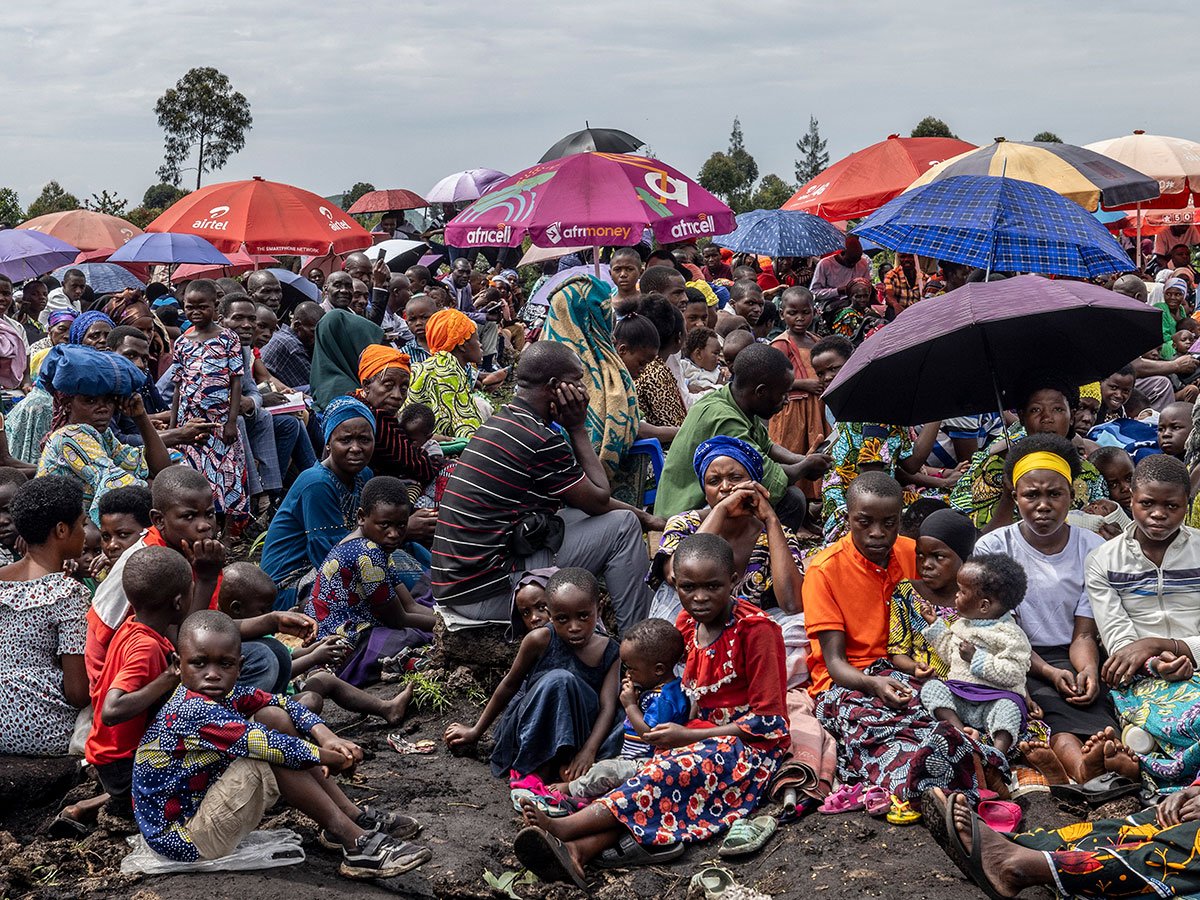
Whereas Donald Trump hailed the “peace” agreement between Rwanda and DRC as marking the end of a deadly three-decade war, a new report from the Oakland Institute, Shafted: The Scramble for Critical Minerals in the DRC, exposes it as the latest US maneuver to control Congolese critical minerals.
Under the Guise of Peace
After three decades of deadly wars and atrocities, the June 2025 “peace” deal between Rwanda and the Democratic Republic of the Congo (DRC) lays bare the United States’ role in entrenching the extraction of minerals under the guise of diplomacy. For decades, US backing of Rwanda and Uganda has fueled the violence, which has ripped millions of Congolese lives apart while enabling the looting of the country’s mineral wealth. Today, Washington presents itself as a broker of peace, yet its longstanding support for Rwanda made it possible for M23 to seize territory, capture key mining sites, and forced Kinshasa to the negotiation table with hands tied behind its back. By legitimizing Rwanda’s territorial advances, the US-brokered agreement effectively rewards aggression while sidelining accountability, justice for victims, and the sovereignty of the Congolese people.
The incorporation of “formalized” mineral supply chains from eastern DRC to Rwanda exposes the pact’s true aim: Securing access to and control over minerals under the guise of diplomacy and “regional integration.” Framed as peacemaking, this is part of United States’ broader geopolitical struggle with China for control over critical resources. Far from fostering peace – over a thousand civilians have been killed since the deal was signed while parallel negotiations with Rwanda’s rebel force have collapsed – this arrangement risks deepening Congo’s subjugation. Striking deals with the Trump administration and US firms, the DRC government is surrendering to a new era of exploitation while the raging war continues, driving the unbearable suffering of the Congolese people.
Introduction
The conflict in eastern DRC, which dates back three decades to the aftermath of the 1994 Rwandan genocide and subsequent Congo Wars, has claimed over six million lives, displaced millions more, and inflicted widespread suffering. Since late 2021, Rwanda and its proxy militia, M23, have stormed through mineral-rich lands and regional capitals, inflicting brutal violence and triggering mass displacement. While billions of dollars in natural resources are extracted from the area, Congolese communities toil in extreme poverty.
On June 27, 2025, a “peace” agreement was signed between Rwanda and the DRC under the auspices of the Trump administration, with diplomatic assistance from Qatar.1 The deal included pledges to respect the territorial integrity of both countries, to promote peaceful relations through the disarmament of armed groups, the return of refugees, and the creation of a joint security mechanism. A key clause commits the countries to launch a regional economic integration framework that would entail “mutually beneficial partnerships and investment opportunities,” specifically for the extraction of the DRC’s mineral wealth by US private interests.
Placing the deal in a historical perspective – after three decades of conflict and over seven decades of US chess game around Congolese minerals – this report examines its implications for the Congolese people as well as the interests involved in the plunder of the country’s resources.
The report begins by retracing 30 years of war, fueled by the looting of Congo’s mineral wealth and devastating for the people of eastern DRC. It then examines how US policy in Central Africa, from the Cold War to the present, has been shaped by its interest in Congolese minerals, sustained alliances with Rwanda and Uganda, and a consistent pattern of overlooking atrocities in support of these allies.
The report then analyses the implications of the regional economic integration aspect of the deal, which aims to link mineral supply chains in the DRC and Rwanda with US investors. The last sections examine the prospect for lasting peace and security resulting from the deal and the impact of growing involvement of US private actors in DRC and Rwanda.
Original Source: Oakland Institute
Related posts:

 Profit off Peace? Meet the Corporations Poised to Benefit from the DRC Peace Deal
Profit off Peace? Meet the Corporations Poised to Benefit from the DRC Peace Deal
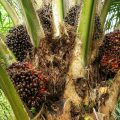 DR Congo: RIAO-RDC calls for the immediate release of four leaders from the community of Mwingi who were arrested after a peaceful protest against the oil palm plantation company PHC
DR Congo: RIAO-RDC calls for the immediate release of four leaders from the community of Mwingi who were arrested after a peaceful protest against the oil palm plantation company PHC
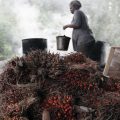 DR Congo oil palm company bankrolled by development banks unleashes wave of violence against villagers after peaceful protests
DR Congo oil palm company bankrolled by development banks unleashes wave of violence against villagers after peaceful protests
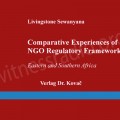 Operations of civil society organizations will continue to be stifled until government understands their work – New Book.
Operations of civil society organizations will continue to be stifled until government understands their work – New Book.

COP30 : a further step towards a Just Transition in Africa

‘Food and fossil fuel production causing $5bn of environmental damage an hour’

Four hundred fifty victim families of the Oil Palm project in Buvuma are to receive compensation by this Friday – Witness Radio

Britain, Netherlands withdraw $2.2 billion backing for Total-led Mozambique LNG

Four hundred fifty victim families of the Oil Palm project in Buvuma are to receive compensation by this Friday – Witness Radio

Women’s groups demand equality in land tenure security to boost food production.

Tension as Project-Affected Persons demand to meet Uganda’s President over Oil Palm growing on their grabbed land.

Land commission starts updating govt land countrywide.

Innovative Finance from Canada projects positive impact on local communities.
Over 5000 Indigenous Communities evicted in Kiryandongo District
Petition To Land Inquiry Commission Over Human Rights In Kiryandongo District
Invisible victims of Uganda Land Grabs
Resource Center
- REPARATORY AND CLIMATE JUSTICE MUST BE AT THE CORE OF COP30, SAY GLOBAL LEADERS AND MOVEMENTS
- LAND GRABS AT GUNPOINT REPORT IN KIRYANDONGO DISTRICT
- THOSE OIL LIARS! THEY DESTROYED MY BUSINESS!
- RESEARCH BRIEF -TOURISM POTENTIAL OF GREATER MASAKA -MARCH 2025
- The Mouila Declaration of the Informal Alliance against the Expansion of Industrial Monocultures
- FORCED LAND EVICTIONS IN UGANDA TRENDS RIGHTS OF DEFENDERS IMPACT AND CALL FOR ACTION
- 12 KEY DEMANDS FROM CSOS TO WORLD LEADERS AT THE OPENING OF COP16 IN SAUDI ARABIA
- PRESENDIANTIAL DIRECTIVE BANNING ALL LAND EVICTIONS IN UGANDA


